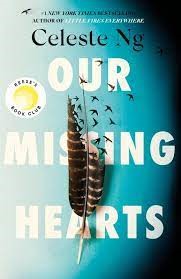Act
of Oblivion, by Robert Harris.
The execution of King Charles the First on January 30th, 1649 was the highlight of the English Civil War between the Royalists (Cavaliers) and Parliamentarians (Roundheads); a great victory for the Puritans led by Oliver Cromwell against Godless, dissolute voluptuaries, all Catholics to a man, slaves to Popish Rome. England was finally to be a republic, ruled by the English. For a time.
Internationally famous author Robert Harris, who has
covered just about every world-changing epoch in history, has now turned his
attention to the turbulence and tragedy of England after the ascension of
Charles 2nd, and the newly founded Puritan States in the great,
unknown and largely undiscovered land of America. And what is hugely notable about Mr Harris’s
recreation is that every character – with the exception of The Manhunter – is
authentic; each person has a recorded
existence. Which is not to say that
there wasn’t a manhunter: as Mr Harris
says, there had to be a man who mercilessly tracked down each man responsible
for signing Charles the First’s death warrant.
When Royalty was restored anyone who had not fled to Europe or the
American Colonies was rounded up, flung in the Tower and hung, drawn and
quartered in front of the masses on a well-advertised date.
And those who were in Europe were tricked into coming out
of hiding at the prospect of fictitious meetings with their beloved families,
only to find that Richard Nayler, The Manhunter, had tricked them: they were all going to die by the cruellest
death imaginable: ‘to be hanged until the point of unconsciousness, cut down,
revived, castrated, disembowelled – the entrails dragged out and burned in
front of the living victim – then beheaded and his body cut into four quarters
for public display’.
Nayler is very pleased with his tally of Regicides
so far, but two men have continually escaped him by fleeing very speedily on
one of the first ships after the punishments were announced, to the Puritan
Colony of New England, on the East Coast
of North America. Despite one fruitless trip
to America where his prey, Puritan Colonels Edward Whalley and William Goffe
successfully eluded him, Nayler has not forgotten them, for their righteous
cruelty resulted in the loss of his loved ones:
he will stop at nothing to see them dead, for as we all know, revenge is
a dish best served cold.
Mr
Harris is an enormously competent writer, bringing to life beautifully the
lives and times of characters great and small, and his descriptions of the
great, hospitable, perfect new land and its indigenous occupants at the mercy
of its Colonisers brings a lump to one’s throat today, three hundred and sixty
years later: Man, the wrecker. FIVE STARS.






